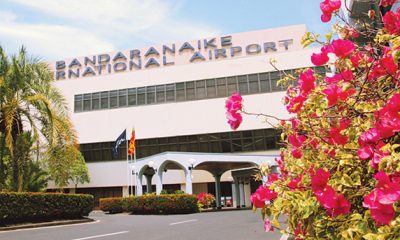Business
Public tug of war on wage hike for plantation sector workers
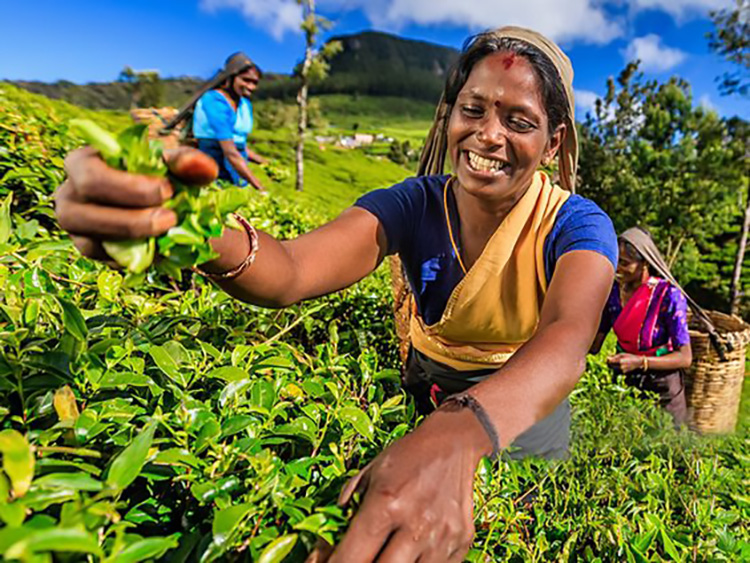
Planters’ Association says it’s an arbitrary, reckless decision by the government
They reiterate their commitment to a productivity-linked wage model
Warns against any attempt at expropriation by the government
The plantation industry raised its strongest possible objections to the government’s arbitrary, reckless, unilateral decision to drastically hike minimum wages for tea and rubber sector workers by an unprecedented 70%.All producer stakeholders issued a unified warning against the devastating impact the latest increase would have on the plantation sector, leading crippling operational challenges, ultimately leading to severe economic instability for the nation.
“This decision was made without proper consultation or consideration of the needs of all industry stakeholders. In particular, it fails to provide any consideration and threatens to cripple every segment of the Sri Lankan tea and rubber industry. This current effort to force such a clearly unsustainable mandatory minimum wage on tea and rubber smallholders and the Regional Plantation Companies (RPCS) is impossible for the industry to absorb, even with radical cuts to basic operational necessities. The continuity of the entire plantation sector is now at risk, and most critically the livelihoods of the very workers and communities who are connected to the industry across Sri Lanka,” The Planters’ Association of Ceylon stated.
As a result of the decision, the cost of production for tea and rubber is set to rise dramatically, with estimates indicating a minimum 45% increase in the cost per kilogram of tea. This surge in operational costs will render Sri Lanka’s tea and rubber industries uncompetitive in the global market, further exacerbating the financial strain on these sectors.
Additionally, the wage hike will place an enormous burden on Regional Plantation Companies (RPCs), which will face an annual increase in excess of Rs. 35 billion inclusive of EPF/ETF and gratuity payments. This financial strain is unsustainable and threatens the livelihoods of thousands of workers in the plantation sector.
The PA also noted that the current approach of the Government in attempting to coercively set wages for the private sector, and interfere in management of the sector from key Government figures represent a stark violation of the terms of the IMF agreement, which is crucial for Sri Lanka’s economic recovery. This decision is very clearly driven by short-term populist politics aimed at securing electoral victories rather than fostering long-term economic health of the industry, and securing the interests of workers.
The IMF’s $3 billion Extended Fund Facility (EFF) for Sri Lanka is contingent on several stringent conditions aimed at ensuring fiscal consolidation including reduced intervention in state-owned enterprises (SOE). Historically, state control over enterprises has led to inefficiencies and financial burdens, as evidenced by the failures of numerous state-run businesses in Sri Lanka.
Historically, the state has consistently failed to manage State-Owned Enterprises (SOEs) effectively, leading to steep losses and in many instances, near total collapse. By the time of privatization in 1992, state owned plantations made continuous losses that had to be heavily subsidized by the Government up to Rs. 5 billion per year which was borne by the Treasury.
A further Rs. 8 billion was owed by the JEDB and SLSPC to the Bank of Ceylon and Peoples’ Bank as a result of a US$ 300 million lending facility which was extended to the state plantations by the World Bank. While these funds were intended for the improvement of the plantations industry, there were no significant improvements and the plantations did not have the ability to repay the debts, and the Government was eventually compelled to absorb this debt.
Following privatization, worker wages appreciated sharply, and with a significantly larger workforce of 327,123 within the RPC sector the industry was able to operate more effectively, investing substantially towards the development of the industry, including all of the key certifications and standards that have allowed Pure Ceylon Tea, and rubber to maintain a reputation for unmatched quality relative to global competitors.
These efforts have led to improvements in efficiency and productivity, which are now at risk due to the proposed wage hike. It is also important to note that all these companies are publicly traded companies listed on the Colombo Stock Exchange. Any attempt at a second and immediate expropriation by the Government will therefore contravene Securities and Exchange Commission and SEC rules, the Companies Act and other related statutory provisions.
Such an arbitrary and impractical decision also risks severe damage to local and foreign investor confidence alike. The PA warned that this would have negative consequences beyond the plantation industry, especially at a time when Sri Lanka desperately requires foreign direct investment to help boost strategically important sectors in manufacturing and services, as well as the agriculture sector.
The PA has long advocated for a shift to a productivity-linked wage model or a revenue share model, which aligns worker compensation with productivity and revenue earned at auction. This approach not only incentivizes productivity but also ensures a fair and sustainable wage system for workers. Already workers under revenue share under the previous wage structure recorded earnings in excess of the minimum wage that was recently gazette.
The current daily attendance-based minimum wage model is outdated and does not reflect the realities of the modern plantation industry. Any disruption to production or quality standards could send shockwaves through export markets, diminishing export revenues and competitiveness.
“We urge policymakers to prioritize long-term economic stability over short-sighted decisions and to consider the industry’s proposals for a productivity-linked wage model,” the PA said.
Business
Lanka’s largest solar park set to transform energy landscape and local economy in Hambantota
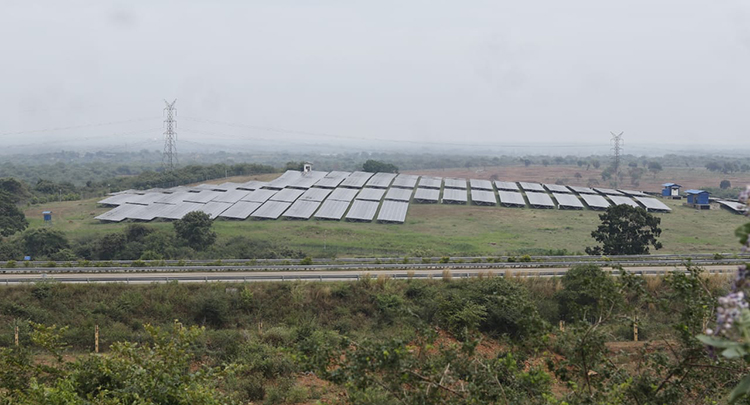
A new era in Sri Lanka’s renewable energy is unfolding in the Gonnoruwa Division of Hambantota District, where construction has begun on the country’s largest solar power park. Spanning 450 acres and designed to generate 150 megawatts (MW) of electricity, the US$150 million private-sector-led project is poised to become a cornerstone of the nation’s sustainable energy ambitions.
Officials say the solar park, guided by the Sustainable Energy Authority and the Mahaweli Authority, will make its first contribution to the national grid by the end of this year, with full capacity expected by 2026. Once completed, the facility will rank among Sri Lanka’s largest renewable energy installations, second only to the 210 MW Victoria Dam and the 150 MW Upper Kotmale hydropower project.
The initiative is being framed as a strategic response to recurring power cuts in the Southern Province during annual drought periods. With a projected 20% contribution to the country’s daytime electricity demand, the solar park is expected to significantly stabilize the grid, reduce reliance on fossil fuels, and contribute to the country’s renewable energy targets.
Project Engineer Thilanka Bandara confirmed that preliminary land preparation and boundary works have been completed, with 50 MW already feeding into the national grid. The investment, fully funded through foreign direct investment, local bank loans, and equity capital, requires no government funding. Two private firms are sharing the development, contributing 70 MW and 80 MW respectively.
Bandara highlighted a unique feature of the project: the transmission infrastructure, estimated at US$16 million, is entirely financed by the investors, marking a departure from conventional grid-connected projects. The park will also employ state-of-the-art ground-mounted solar technology, considered the most advanced currently deployed in Sri Lanka.
In a first for Sri Lanka, the solar panels will be installed five feet above the ground, allowing partial-shade crops to be cultivated underneath. Technical Officer Sithmina Bandara explained that this setup will enable the cultivation of food plants such as mushrooms, which thrive in shaded conditions, creating a model for integrated solar-agriculture systems. Agricultural experts have already provided guidance on implementing this initiative, which combines energy production with local food security.
The project is expected to generate 750 to 1,000 direct and indirect jobs, with 400–500 already employed in the initial phase. Long-term maintenance work will provide further employment opportunities, offering a substantial economic boost to the Hambantota region. Environmental management measures are also in place to prevent elephants from entering nearby villages, ensuring harmony between development and wildlife.
All necessary approvals and permits were obtained by February 2025, aligning the project with the Ceylon Electricity Board’s national generation plan. Officials confirmed that upon completion, the total output of the Solar Energy Park will rise to 200 MW, combining existing installations with the new 150 MW facility.
Experts say the Hambantota solar park represents more than just a power generation project. Its innovative design, private-sector financing, and integrated agricultural approach position it as a template for future renewable energy projects in Sri Lanka, reflecting a new model of sustainable development that balances energy, economy, and environment.
By Sirimanta Ratnasekera
Business
ESU Kandy clinches dominant victory at ‘Battle of Esoftians’
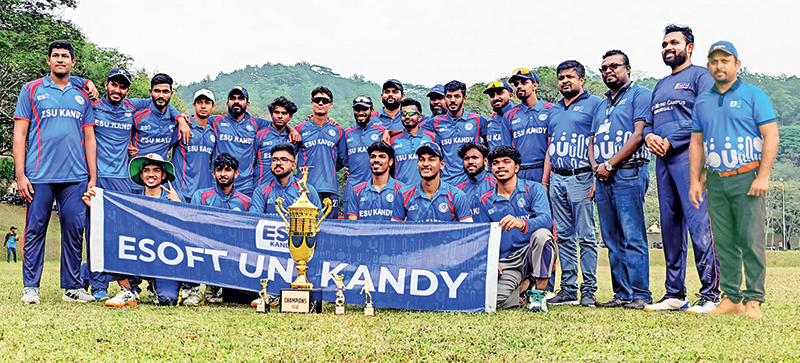
The Battle of Esoftians, an annual cricket encounter organized by ESOFT Uni Kandy, concluded with a spectacular display of cricketing prowess as the Kandy team secured a massive 245-run victory over ESOFT Metro Campus, Kurunegala. The match was held on the 15th at the University of Peradeniya Grounds.
Winning the toss and electing to bat first, the ESOFT Uni Kandy batsmen dominated the field from the outset. They showcased an explosive batting performance, posting a formidable total of 280 runs for the loss of 5 wickets in their allotted 20 overs.
In response, the Kurunegala ESOFT Metro team struggled against a disciplined bowling attack. The Kandy bowlers dismantled the opposition’s batting lineup, bowling them all out for a mere 35 runs, sealing a historic win for the Kandy campus.
The event was graced by the presence of key officials from the ESOFT management: Amila Bandara – Chief Operating Officer (ESOFT Uni), Dimuthu Thammitage – General Manager (Central Region), Lakpriya Weerasinghe – Deputy General Manager, ?Lahiru Diyalagoda
Centre Manager-Degree Division, ESOFT Metro Campus Kurunegala and Dushantha Sandaruwan – Master in Charge (ESU Kandy Cricket Club)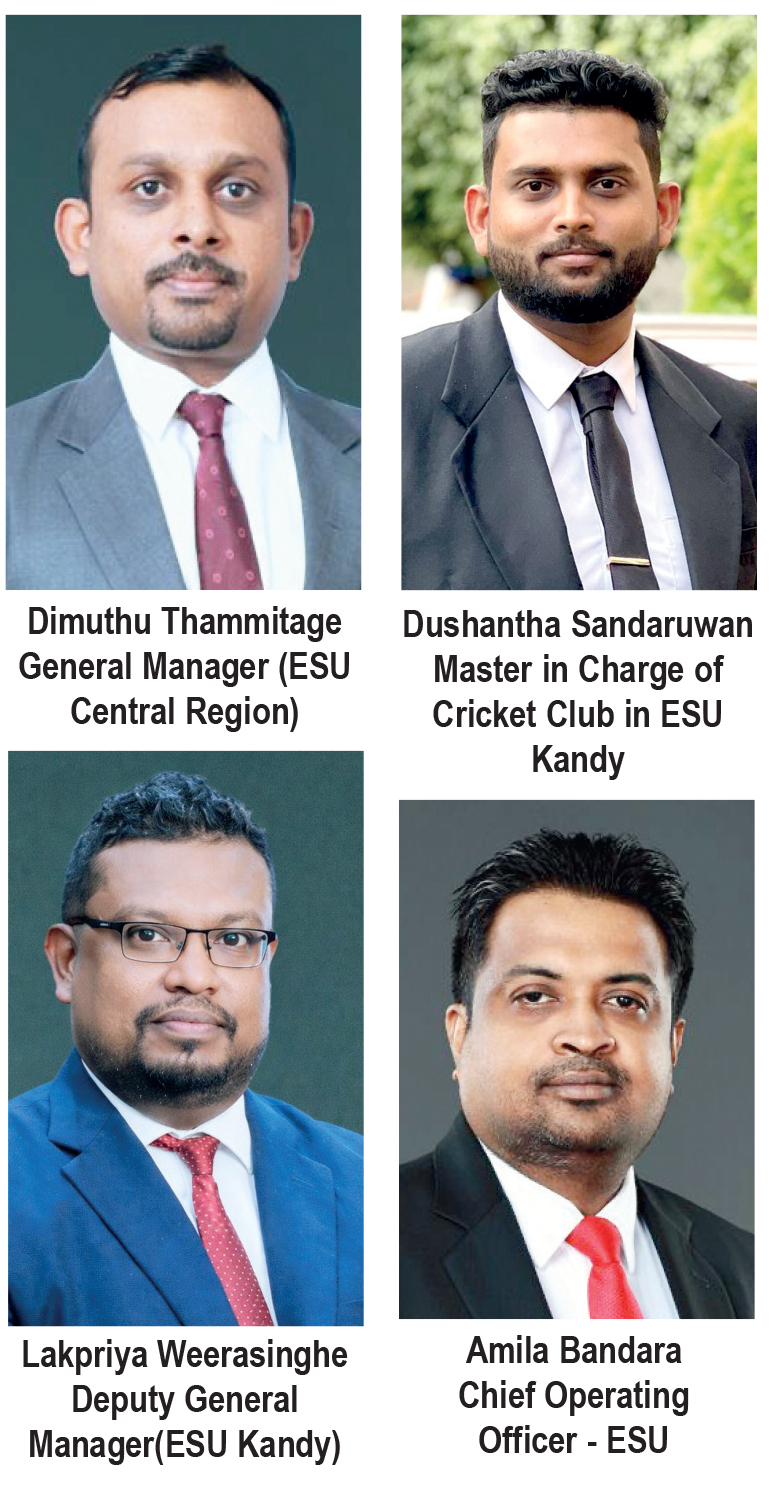
Team Lineups
ESOFT Uni Kandy (Winners)
Chamath Ekanayake (Captain), Dinuka Tennakoon (Vice Captain), Dushantha Sandaruwan (MIC), Chalitha Rathnayake, Pulasthi Bandara, Isuru Dehigama, Kesara Nuragoda, Aadhil Sherif, Isuru Pannala, Achintha Medawatta, Ahamed Shukri, Gowtham Hari Dharshan, Danushka Sahan, Eranda Bandara, and Damith Dissanayake.
ESOFT Metro Campus Kurunegala (Runners-up)
Adeesha Samarasekara, Savishan Madusha, Lahiru Diyalagoda, Hirun Damayantha, Naveen Madushanka, Daham Pothuwewa, Senuda Thewnaka, M.R. Abdulla, Arunodya Dasun, Mohamad Afri, Desith Perera, Lasitha Ranawaka, Anton Dilon, Shenuka Thirantha, and Kavindu Bandara.
Text and Pix By S.K. Samaranayake
Business
HNB joins Royal–Thomian “Battle of the Blues” as official banking partner

HNB PLC, Sri Lanka’s leading private sector bank, has joined as the Official Banking Partner for the 147th edition of the historic “Battle of the Blues,” the Royal–Thomian cricket encounter between Royal College, Colombo, and S. Thomas’ College, Mt. Lavinia. Commenting on the partnership, HNB’s Managing Director/CEO Damith Pallewatte highlighted the bank’s long-standing connection with cricket, including sponsorship of Sri Lanka’s first Test match against England in 1982, and emphasized HNB’s commitment to nurturing young talent and promoting school cricket. The three-day clash for the Rt. Hon. D. S. Senanayake Memorial Shield will take place from March 12–14 at the SSC Grounds, with the Mustangs Trophy one-day match following on March 28 under lights. HNB’s inaugural involvement marks a milestone in the bank’s sports marketing journey, strengthening its role in the school cricket ecosystem. The bank will enhance the spectator experience by introducing digital and cashless banking solutions, modernizing the event while preserving its rich heritage and sporting tradition.
-

 Business6 days ago
Business6 days agoMinistry of Brands to launch Sri Lanka’s first off-price retail destination
-

 Latest News2 days ago
Latest News2 days agoNew Zealand meet familiar opponents Pakistan at spin-friendly Premadasa
-

 Features10 hours ago
Features10 hours agoWhy does the state threaten Its people with yet another anti-terror law?
-

 Latest News2 days ago
Latest News2 days agoTariffs ruling is major blow to Trump’s second-term agenda
-

 Latest News2 days ago
Latest News2 days agoECB push back at Pakistan ‘shadow-ban’ reports ahead of Hundred auction
-

 Features6 days ago
Features6 days agoGiants in our backyard: Why Sri Lanka’s Blue Whales matter to the world
-

 Sports3 days ago
Sports3 days agoOld and new at the SSC, just like Pakistan
-

 News2 days ago
News2 days agoConstruction begins on country’s largest solar power project in Hambantota








